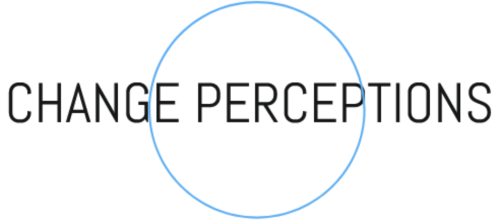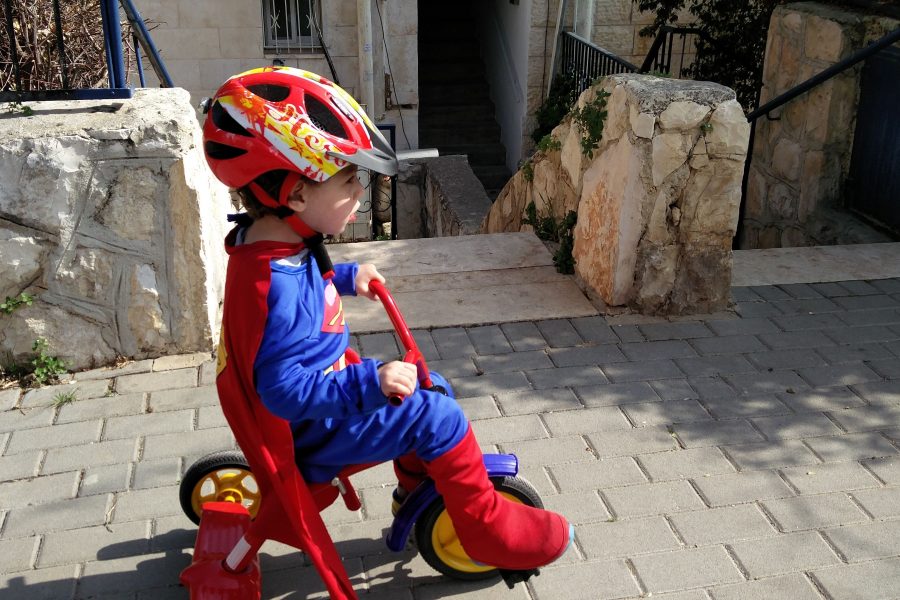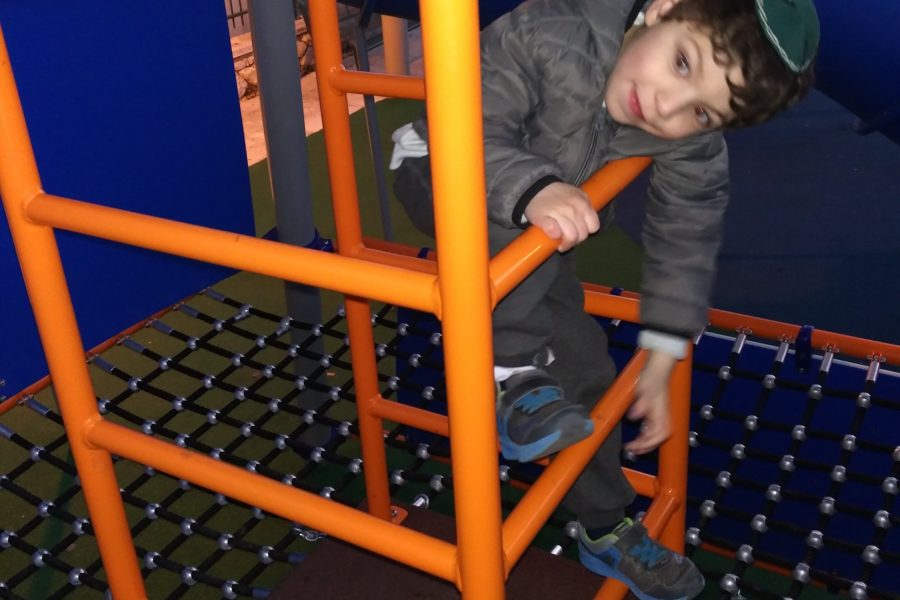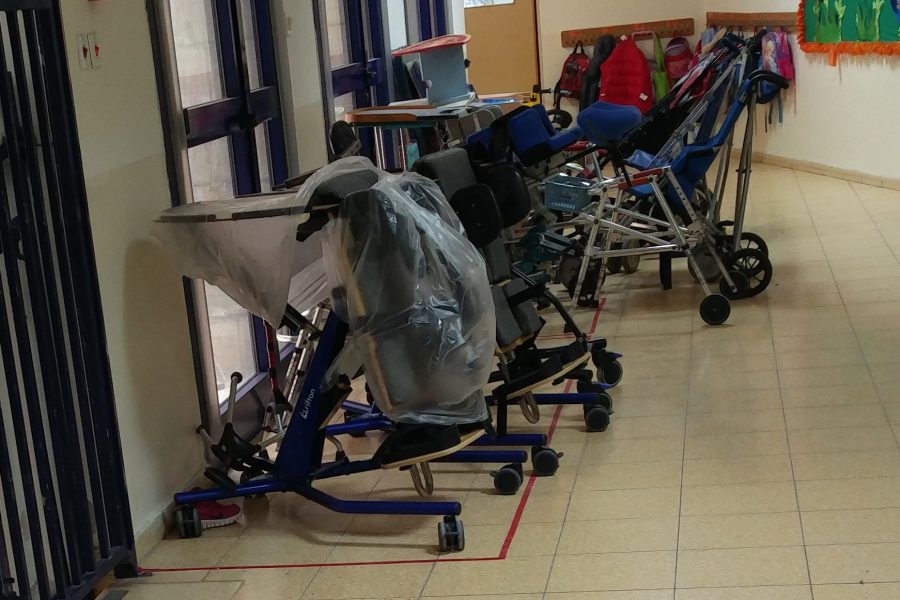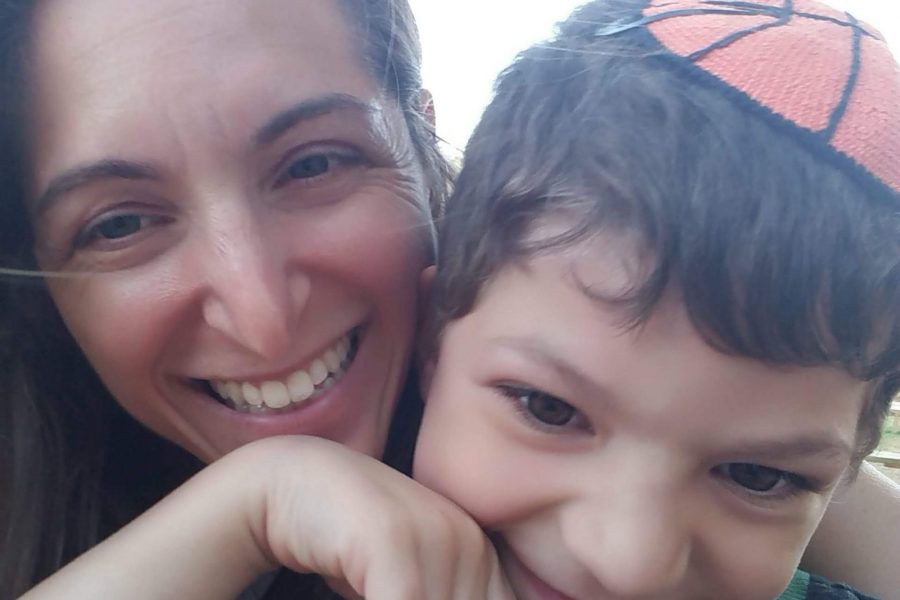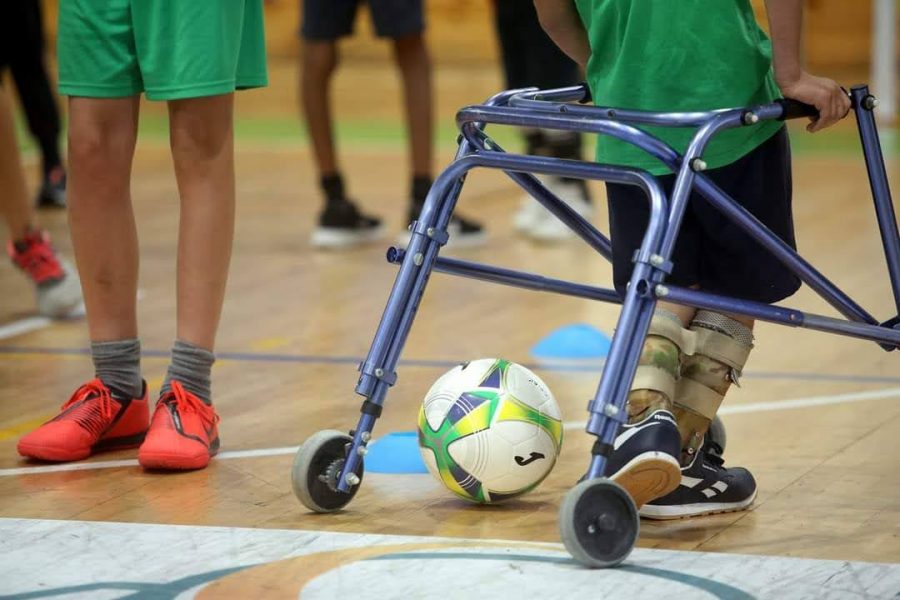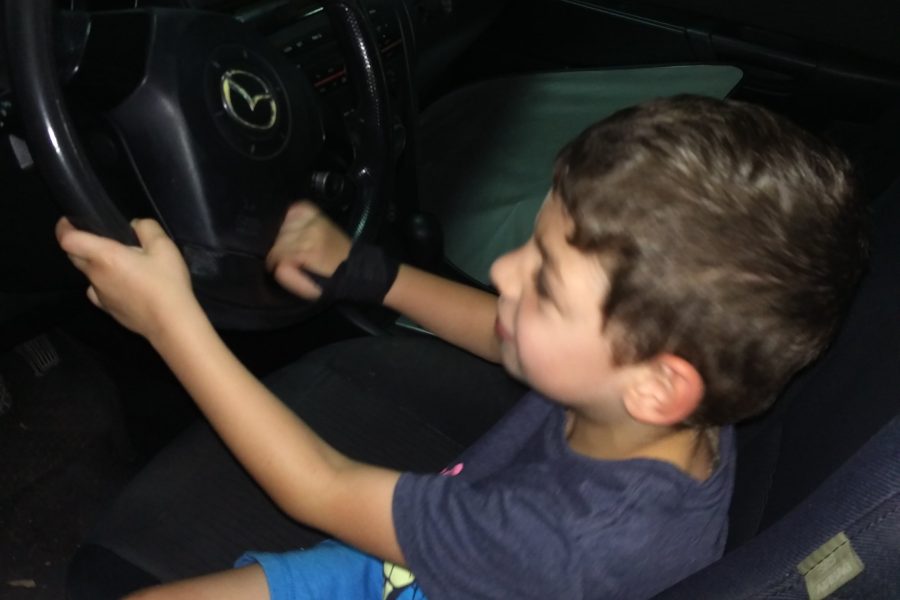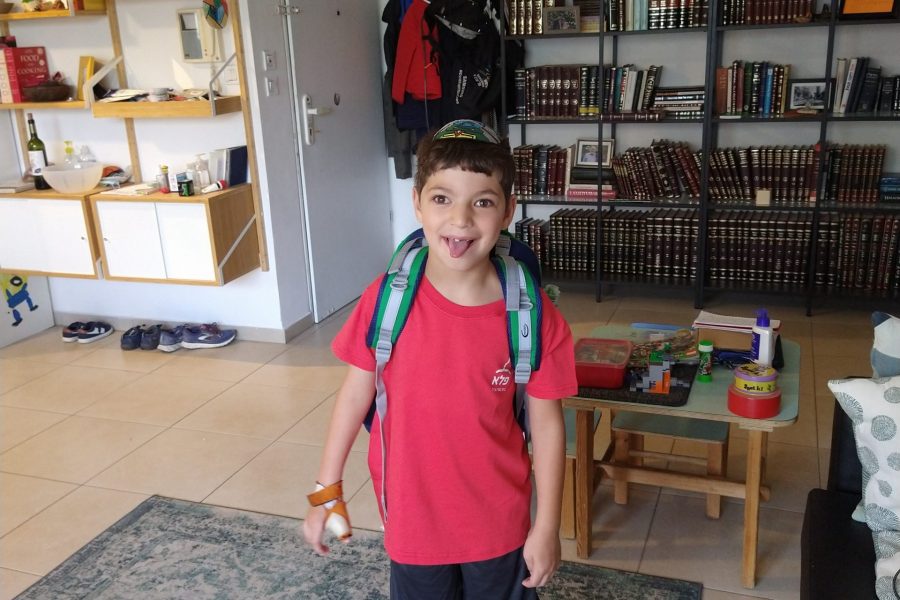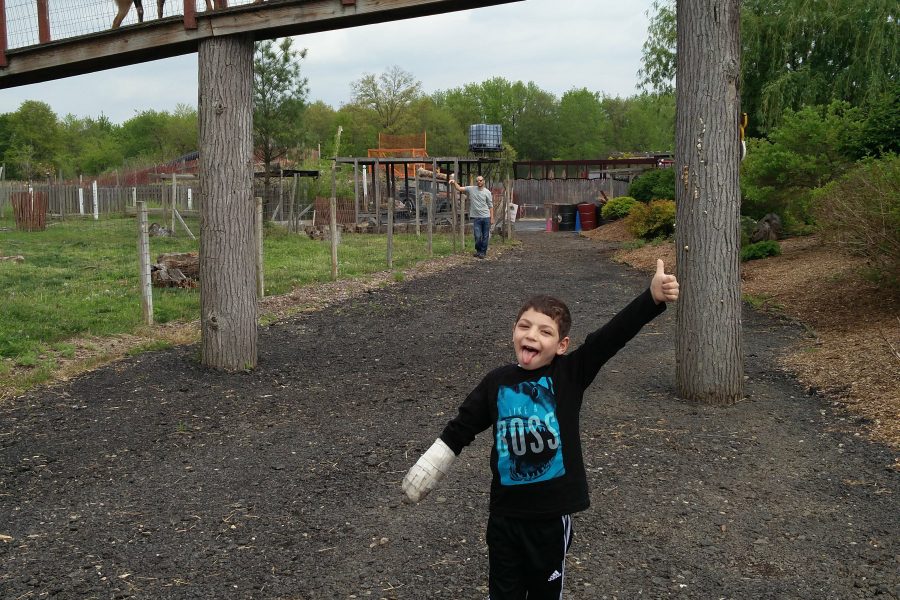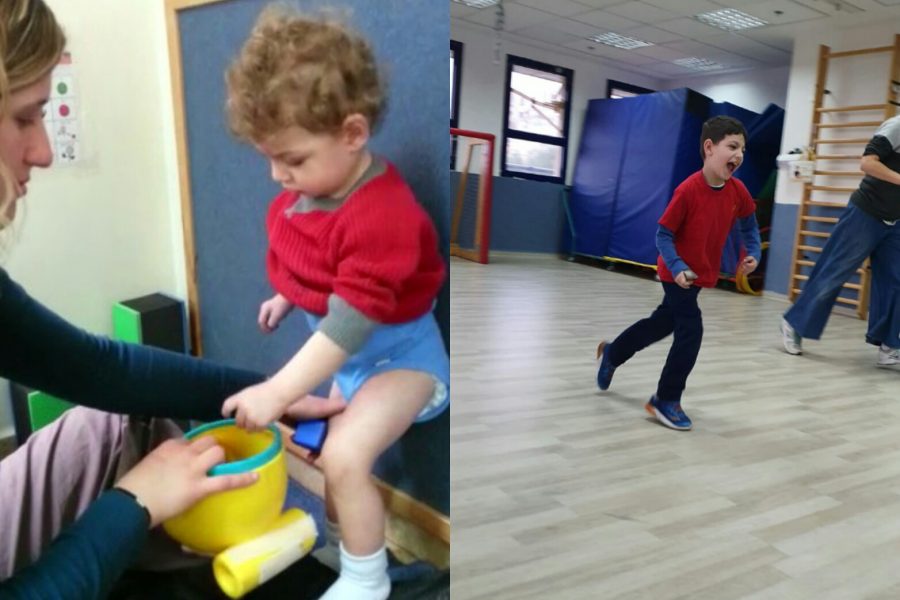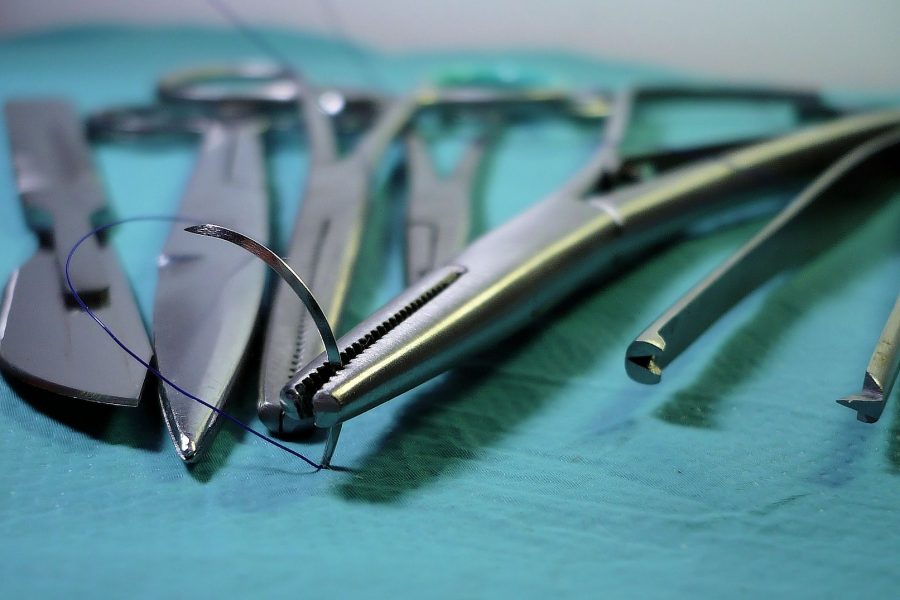In the spring of 2013, I watched Louisville play Michigan State in the NCAA Men’s Basketball Championship. Having no strong allegiance to the Cardinals or the Spartans – just an avid fan of the game, I simply enjoyed watching great plays by both teams. I was about five or six months pregnant, and throughout the game Amichai kept kicking and flipping around. I knew it really didn’t mean anything, but it was fun to imagine that maybe he too was excited by the game I had loved since I was ten. Maybe he would share my love. Maybe we would spend hours together on the court, both intoxicated by the echo of the dribble off the hardwood floors and the unmistakable swish of the nets as the ball floats through. Maybe I would teach him everything I know, maybe he would even become a better player than me. Maybe.
Fast forward four months later and I am sitting in a meeting with three doctors who are explaining to me – to me – that my son would never be an athlete, or at least a good one. Or an artist. Or a musician. Or anything that required a set of normal motor skills – that wasn’t for him. One doctor, in an attempt to be encouraging said there was child in his own son’s boy scout troop that has CP. He said not to worry, all the children clap when he is able to jump over a stick. Intentions were pure, execution poor and patronizing. My child is not a pity party. I don’t think the doctors were trying to be intentionally negative, they simply were presenting statistics and their own professional experiences based off hundreds of CP cases they had diagnosed or treated. They weren’t consciously saying to set the bar low, but perhaps they were simply trying to manage expectations. I did find it perplexing though that of all the questions they couldn’t answer – somehow, they could definitively tell me what Amichai wouldn’t be able to do.
This angered me.
And still, I continued to hear this sentiment over and over again. At his six-week check-up with the neurologist, at his three-month check-up…he’s doing good – making progress, he won’t be a good athlete but…It’s as though they didn’t see the mother decked out in Nike clothing in front of them. The thing is, I didn’t need Amichai to play sports. Even though friends and family had (jokingly?) pegged me for one of those over-zealous and crazed parents on the sidelines, I always knew there was a chance that my kid would not be drawn to sports in the same way I had, and I would be ok with that. His interests won’t be the same as mine. That being said, I certainly didn’t need anyone telling me that he can’t play sports, that he wouldn’t excel in something he hadn’t even tried yet. How can someone else – even if that someone else is a doctor – define what you can or can’t do? Even crazier, how can they define what a little baby can or cannot do so early on in his life?
This wasn’t the first time in history that doctors or medical professionals expressed some archaic idea about who can and can’t play sports. My own gender was subject to their inaccurate beliefs. Women were often targeted as being too weak and ill equipped for physical activity. Doctors warned of young girls and women over-exerting themselves in sport. When women first started playing basketball, medical professionals were concerned they would collapse in “nervous fatigue”. Apparently, a woman has enough strength to push out a baby but it’s too dangerous to have her run the full length of a basketball court. Luckily, I grew up an era where those beliefs and myths had long been laid to rest, and I was given every opportunity to play sport. And that is what I want to give Amichai. I want him to know that if he wants to play sports, the opportunity exists equally for him. I also want him to know that if he finds a sport that speaks to him, its ok for his execution of it to look differently than a “typical” athlete. The way his body works is different, but still very capable.
Like any five-year-old, Amichai will always choose running over walking. He runs down supermarket aisles, he runs to grab a toy from his room, he runs to water the plants outside on the porch, he runs to get a snack from the drawer, he runs to the park, he runs at the park…the only thing he doesn’t do is run to bed, somehow then his pace slows to a procrastinating crawl. Someone once remarked to me that Amichai would have his own Forest Gump moment one day, running so fast he breaks free of the braces. I smiled because I knew this person was trying to convey something positive, but I’m not sure that’s how it works. People with CP don’t magically break free from their braces. They work harder for their steps than the average person, training their body to work in a certain way, demanding tasks of it that do not always come with ease. Amichai runs with a slight degree of asymmetry, the right hip always a bit behind the left, the right arm moving with less freedom than the left – but there is a lightness to his step, and a rhythm to his pace. He runs with confidence. And for me, that is the actual magic.
I saw this magic too in another runner last week when every platform I use for messaging suddenly became clogged with the Nike video of Justin Gallegos. No one does it like Nike – they can capture a story and convert the masses to believers in less than two minutes. They manufacture magic. But this time – the magic was all in the kid. I recognized the uneven stride immediately, but I also recognized the gracefulness in his determination. He may run differently but who cares because he runs with confidence. It’s not about running the same way everyone else does, it’s about taking ownership of your way and saying it will take me to where I want to go. This wasn’t some fictional movie character breaking free from the braces, this was a kid who put in the work and simply said I am capable, I can do it. Take that Forest Gump. I promise you, this is not some Nike marketing ploy – this is as real as it gets. It was real for me, and it was real for Amichai. He smiled excitedly when he saw it, no doubt seeing himself in Justin. A capable person in a capable body. Just do it, right?
